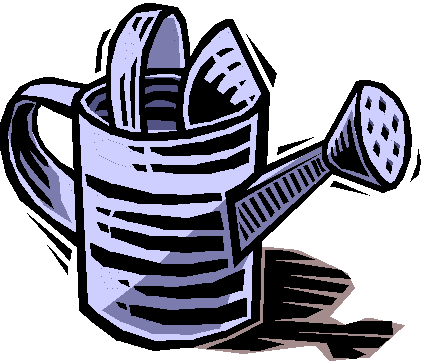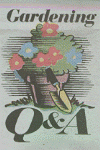

|
All About Gardening and Gardening Q & A by Pernell Gerver |
|
Bookmark
this page or add it to your favorites now! |
|
"Fall Lawn Care - Now's the Best Time to Work on Lawns" |
|
I consider mid to late August through fall to be one of the best times to work on lawns. Growing conditions are right to develop a thick, green, healthy lawn. There are a few lawn care tasks to do at this time of the year that will make the lawn look good right away and improve its future health including fertilizing, weed control, and grub control. Click on a product name below to order it from Pernell Gerver's Online Store. To prevent perennial weed seeds that sprout in fall as well as fertilize the lawn to green it up fast this fall I apply Organic Lawn Weed and Feed, an easy, one-step lawn care program. I apply it myself with a drop spreader or broadcast spreader anytime now through fall. This safe and natural lawn weed and feed contains an organic, slow-release lawn food that fertilizes the lawn making it green up fast without burning. It also contains a safe and natural pre-emergent that prevents weed seeds from sprouting. This product is safe for people, pets, and wildlife and the lawn can be walked on immediately following treatment. After applying the Organic Lawn Weed and Feed, I walk over the lawn and spot spray any existing weeds with Herbicidal Soap Spray, also a safe and natural product. This quickly gets rid of any weeds it is sprayed onto. |
|
By using both of these products together you can get rid of even the toughest lawn weeds, including wild violets, ground ivy, dandelion, crabgrass, nutsedge, clover, purslane, and all other lawn weeds. The most effective, long-term control of grubs is an organic product called Milky Spore Powder Grub Control. Only one application is necessary with the powder. Just one application lasts 20 years or more. I put it on my lawn and garden about 20 years ago and don't have any problems with grubs. I've heard from others that it is still effective and controlling grubs for 45 years with just one application. It is safe for people, pets, and wildlife. In addition to controlling grubs, it indirectly controls beetles since beetles begin as grubs. What's more, if moles, skunks, or birds are digging up the lawn looking for grubs, these pests will go away because their food source (the grubs) will be gone. Milky Spore Powder Grub Control is easy to apply and you can do it now. All you do is drop a teaspoon of the powder roughly every four feet in a grid pattern throughout the lawn and garden, then water it in for about 10 minutes. |

 by
Pernell Gerver
by
Pernell Gerver